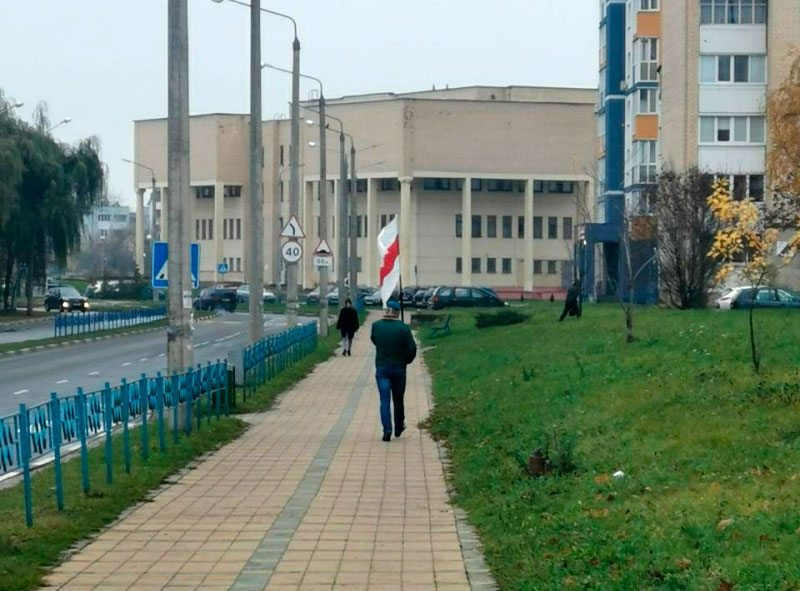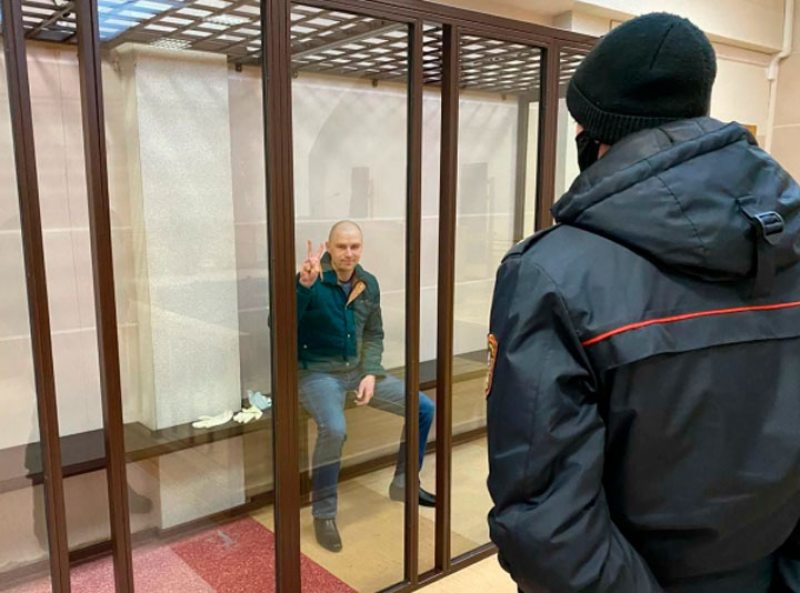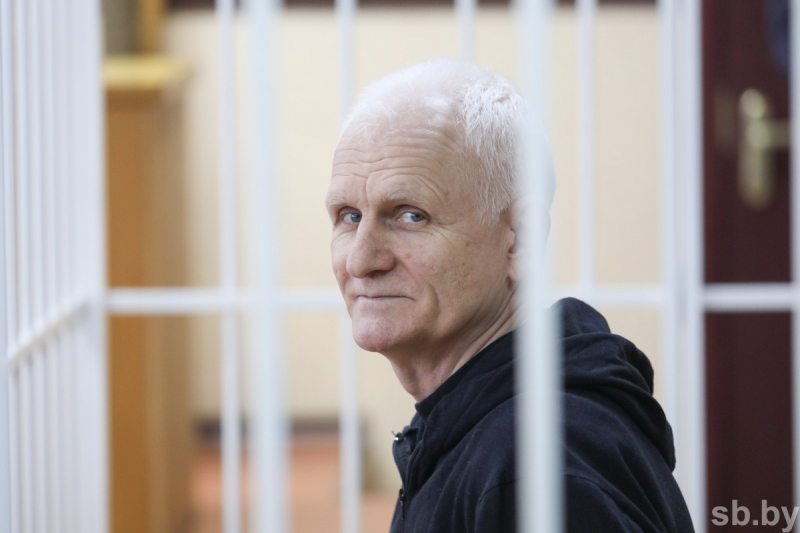Ruslan Akostka: "What is happening in the Belarusian penal colonies is torture"
Ruslan Akostko, a former paratrooper and resident of Salihorsk district, became famous after November 15, 2020, when he walked through the whole city with a white-red-white flag. This is how he honored the memory of the murdered Raman Bandarenka. A photo of the lone paratrooper with the national flag of Belarus in Salihorsk quickly spread across the Internet. Ruslan was detained and a criminal case was initiated for his "resistance during detention." For this, the man was sentenced to three years in a penal colony, although he did not admit guilt at the trial. The political prisoner served time in Vitsba, where he was placed in a punitive isolation cell, a cell-type space and kept without communication with his family. Then a new criminal case was initiated under Article 411 of the Criminal Code and he was sentenced to an additional year of imprisonment. Ruslan was immediately transferred to Hlybokaje penal colony No. 13, and then to one of the toughest penal colonies in Belarus: penal colony No. 9 in Horki. The political prisoner served his full sentence and was released on July 24, 2024 and left Belarus ten days later. Once safe, Ruslan told Viasna about the conditions of detention in the Horki colony and a meeting with Nobel Peace Prize laureate Ales Bialiatski.
"I realized that one of the days I might just not return home"
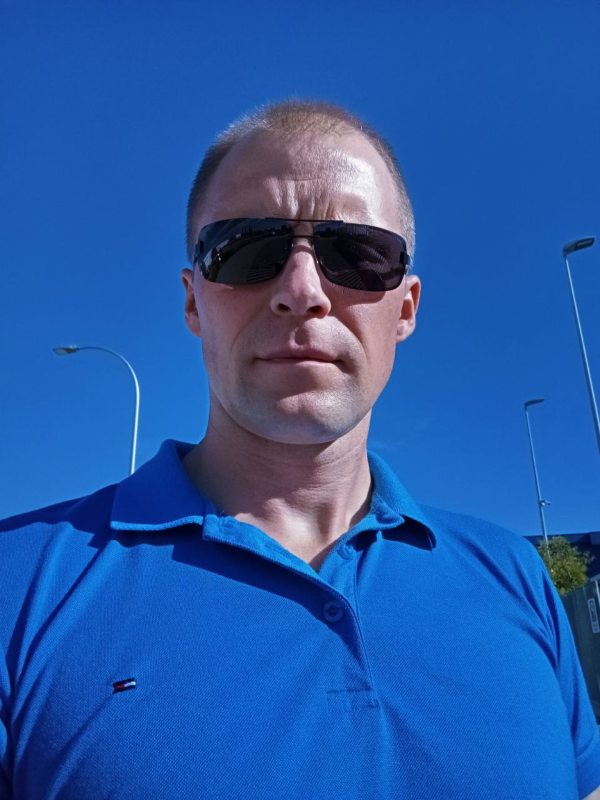
- Ruslan Akostka after his release on October 1, 2024
Ruslan was not detained until 2020. But the man decided to support the protest against Lukashenka's election fraud. Ruslan was detained for the first time in September 2020 right at his home, and his rib was injured in the process. For participating in a protest action, he was sentenced to 15 days of detention. After that, the man decided to take a break from civic activity due to problems with his rib. But then Ruslan read in the news that Raman Bandarenka was killed in the yard near his house. Ruslan wanted to honor the memory of the murdered man, so on November 15, 2020, he went out with the national flag of Belarus. He managed to walk through almost the entire city.
"In a park, the police came up to me and told me to leave it. I refused, then they demanded my ID and wrote down my name in their notebook. Then reinforcements arrived in the form of riot police with guns. They started to detain me: they took the flag, immediately brought me to a minibus, then transferred to a detainee truck, and them took me to the police department. After 15 days, I was not released, and 15 minutes before the supposed release, the prosecutor arrived and charged me under Article 363 of the Criminal Code. I did not expect a criminal case, but on the other hand, given what was happening in the country at that time, I knew that anything could happen. I realized that one of the days I might just not return home."
On February 4, 2021, Ruslan was sentenced to three years of imprisonment in a general security penal colony. He pleaded not guilty at the trial. From November 2020 to April 2021, the man was held in various detention centers in the country.
"It looks like a concentration camp in 1941"
Ruslan says that the high security penal colony in Horki has the toughest conditions, with particular emphasis on the working conditions in the industrial zone:
"The main work in Horki is related to woodworking. Prisoners build pallets and crates for missiles for the needs of the Russian army.
In a month, a prisoner loses 10 kilograms of weight, because for lunch he gets a few spoonfuls of potatoes. It looks like a concentration camp in 1941. Some lose up to 25 kilograms there. And no one is surprised by this. I have seen a person just like in the photographs from the German concentration camps.
I saw how a prisoner was prosecuted under Article 411 of the Criminal Code, who had already been sentenced to 20 years, but they added two more years to that. Murderers are sentenced to 10 years, and a person who committed an act unrelated to an attempt on a person's life is sentenced to 20 years and two additional years.
What surprised me the most was that they imprison both the young to the old: from 18 to 60 and older. Even legless senior citizens and those over 75 are put in a punitive isolation cell. Political prisoners can also be sent to a punitive isolation cell for doing sports. If we talk about torture, it is everywhere. What is happening in the Belarusian penal colonies is torture. This includes slave labor and working conditions in industrial zones. When working with metal, we also found radioactive metal. And sometimes it was brought from Chernobyl, from radioactive zones."
"The convicts avoid Ales, fearing they might be sent to a punitive isolation cell"
At the moment, 10 political prisoners are being held in penal colony No. 9 in Horki, among them the founder of Viasna and Nobel Peace Prize laureate Ales Bialiatski. Ruslan last saw Ales in July of this year, before his release.
"I saw him regularly. Ales has lost weight. But you have to understand that before I met him in the penal colony, I had never seen him before. And when I got free, I looked at a couple of his photos on the Internet. Ales works in woodworking.
We didn't talk openly with him, because he is very famous, a Nobel Prize winner. Convicts, even from his squad, avoid Ales a little and do not communicate with him, because for this they can be sent to a punitive isolation cell, deprived of parcels, calls or otherwise punished. Ales knows that and behaves in a reserved manner. There are all kinds of punishments for communicating with famous and intelligent people.”
"The letter is dishonest"
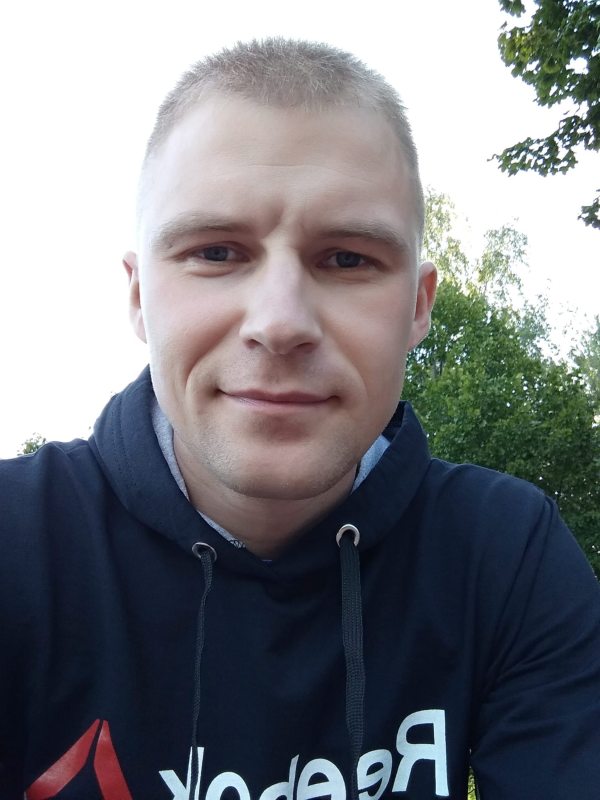
- Ruslan Akostka. Photos from social media
Ruslan says that when letters arrived at the Horki penal colony from people other thaan relatives, they were demonstratively withheld from the addresses.
"In Horki, the first letter I received in quarantine was from a woman from Minsk. They read me the name of the sender. I signed the confirmation that I received it, but they didn't give it to me. They said they would bring it later after a check. Then they brought me a paper saying that 'the letter is dishonest, therefore it is withheld.' This is a specific feature of the Horki penal colony. In other places, they just don't give you the letter. And here they act like this."
"I don't wish anyone to spend four years in a Belarusian prison"
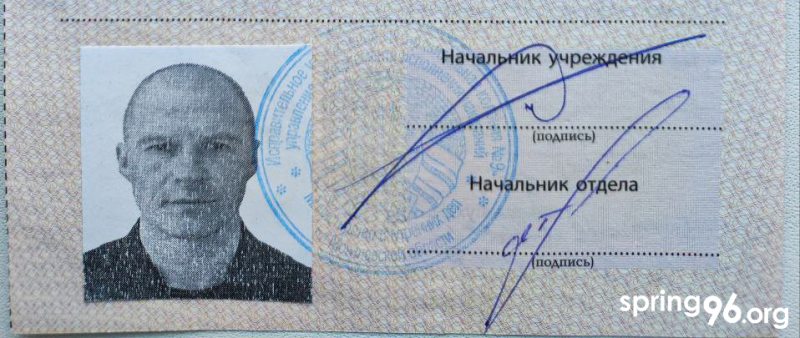
- Information about the release of Ruslan Akostka
Now, talking about the years of incarceration, Ruslan notes that he did not need those almost four years of imprisonment in his life, but he tries to view this time as an experience:
"I don't wish anyone to spend four years in a Belarusian prison. It's great if a person has served time and he has no health problems. This alone is already good. But mostly it does affect both the physical and mental health of a person.
I don't regret now that I went to jail and lost my time. Probably, there was no other choice. But the experience gained is not worth four years. Should I say that it was in vain? No, I won't say that, because it wasn't in vain. Everyone knows why people go to prison in our country, and why they protest, write comments, and put likes."
Ruslan is currently staying in Madrid. He says that, to his surprise, after his release, no major health problems have been detected in him so far:
"Of course, I have teeth problems and vitamin deficiency, but to my surprise, no serious problems were found."
The man plans to learn Spanish, but he doesn't make any big plans. When asked about a potential return home to Belarus, Ruslan did not hesitate to answer that he would return immediately if possible.
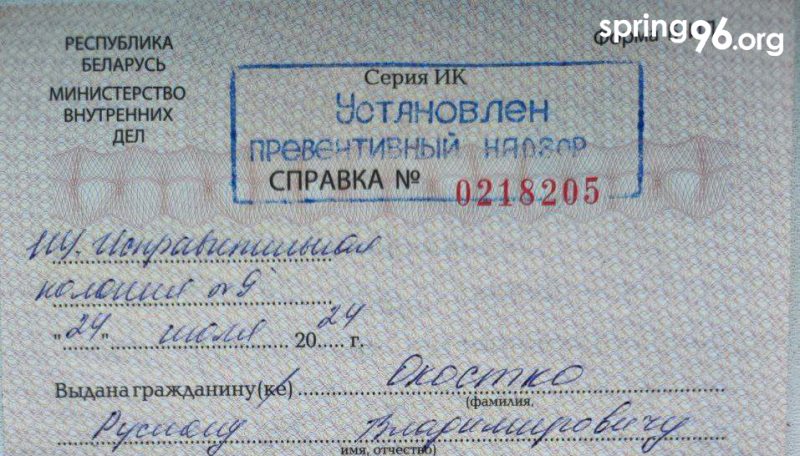
"The main thing now is to restore my psychological well-being. I understand it. After the rest, I will need to get a job and earn a living. I don't make any further plans because there is only one grandiose plan: to release all political prisoners in Belarus."




